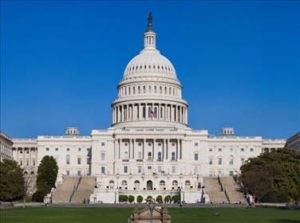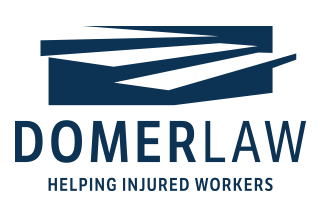
The recently-passed Budget Bill in Wisconsin contains changes to the structure of Wisconsin’s nationally recognized worker’s compensation system. We previously discussed the proposed changes in the following blog posts: Let’s Keep Wisconsin’s Worker’s Compensation System the Best in the Nation! and Wisconsin Legislative Update: Major Changes to Administration’s Proposed Break-Up.
After a lengthy Budget process, here’s where the dust settled for work comp:
WC Division staying at DWD: The good news is that Worker’s Compensation Division is notmoving; the WC Division will remain with the Department of Workforce Development. This includes all dispute resolution specialists, wage analysts, and administrative personnel. It also appears that 6 administrative law judges (ALJs) will remain at the WC Division to deal with “non-litigated” cases. Maintaining the WC Division at DWD is significant as it retains the culture, policies, and laws related to the WC Division.
- The Governor signed off on the WC Division remaining at DWD. When approving the Budget, Governor Walker did nothing to disrupt the structural core of the WC Division remaining at DWD.
Most Judges moving to new agency :The legislative Joint Finance Committee proposed and passed a compromise motion that 18 worker’s compensation ALJs move to the Division of Hearing & Appeals (DHA) in the Department of Administration (DOA) to handle litigated cases. The motion proposed that the transferred Judges devote a minimum of 80% of their time to worker’s compensation issues.
- Governor veto related to ALJ transfer. Governor Walker signed off on the structural work comp changes in the Budget, along with using his powerful veto pen. Walker specifically crossed-out the provision about 18 ALJs going to DOA and the provision regarding the “80% minimum” amount of time to be spent on worker’s compensation issues. Thus, an unknown amount of ALJs are to go to DHA to handle “litigated” cases.
- No limit on ALJ cross-training. With the Governor’s veto, there is no statutory requirement that the existing work comp ALJs handle only or primarily work comp matters. The new agency could make use of the work comp ALJs to address a wide array of claims handled at the Department of Administration (e.g. probation/parole hearings).
The effective date of the agency transfer is January 1, 2016.
Next Steps:
The future is uncertain. With the statutory provisions, we know that the Division of Hearings & Appeals at DOA will now handle and provide hearings in litigated worker’s compensation claims. Presumably, the two agencies will address-as part of the transition-the appropriate policies, procedures, and responsibilities between DWD and DOA for handling non-litigated and litigated worker’s compensation claims. Roadbumps are certain, but we hope that the DOA will continue to provide a high level of government service in administering litigated claims, scheduling hearings, and holding hearings.
We are hopefully the DOA would consider the following as part of any transition:
- Utilize Judge expertise: Many larger court systems use specialized judges (e.g. family court, probate court) to increase efficiency and accuracy in decision-making. Worker’s compensation similarly is a specialized area of the law, with over 100 years of cases, rules, and adminsitrative decisions. As any insurance company can attest, many claims deal with millions of dollars. Judges experienced in the area of worker’s compensation should continue to hear and decide these specialized disputes.
- Maintain existing hearing scheduling system: The current system has an efficient and logical mechanism for scheduling worker’s compensation hearings. Hearings are held at locations across the state, creating an efficiency and convenience for injured workers and employers alike. The system also schedules a hearing only when all parties in a disputed claims are “ready” for a hearing, minimizing delays and createing efficient use of judicial time. Adminsitrative hearings occur very quickly (e.g., 2-3 months) after the parties are ready for a hearing. The totality of the current system looks like a governement efficiency model-we see limited reason to mess with a good set-up.
- Ask for any assistance: With the new split-agency responsibilty for worker’s compensation, we’d urge the DOA to consult with the current practitioners in worker’s compensation. The Division of Hearings & Appeals retains reponsibility for a wide variety of claims. If there are questions about how to address or handle worker’s compensation issues, the experienced practitioners certainly can provide input.
We will continue to keep the worker’s compensation community informed as more information about the transition becomes clear.


